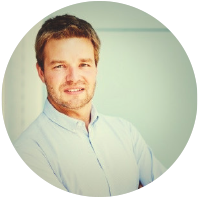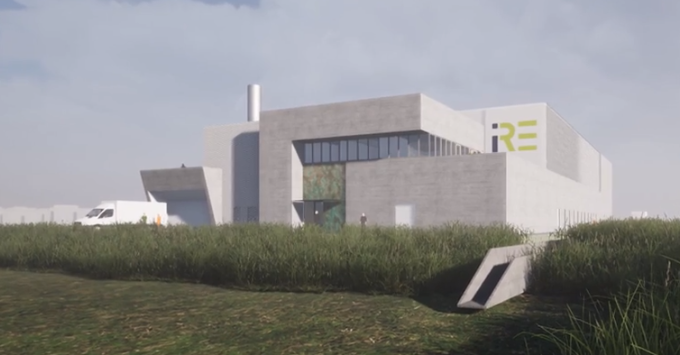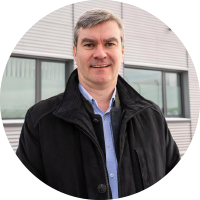The iRE submits its request for a single permit for the construction of a 100% Walloon cyclotron.
In 2020, the Institut National des Radioéléments (IRE) signed a contract with IBA for the construction of a cyclotron on its site in Fleurus.
This cutting-edge equipment will enable the IRE to produce Germanium-68 locally, a key raw material to enable the institute to contribute even more to the fight against cancer.
The iRE is pursuing the progress of this project by submitting today an application for a single permit (town planning and environmental permit).
Since its creation in the 1970s, the iRE has been a pioneer in the development and production of radioisotopes for nuclear medicine. To remain at the forefront of its field of expertise, the iRE has constantly invested in new technologies and its teams, enabling it to implement innovative, safe and sustainable production methods. With this investment in mind, the IRE plans to install a cyclotron with an energy of 30 MeV on its site in Fleurus.
The cyclotron, a key piece of equipment in the fight against cancer
Increasingly used in hospitals around the world, Gallium-68 (or Ga-68) is an isotope that enables very early detection of certain cancers (e.g. neuroendocrine tumours and recurrent prostate cancer), thereby improving patient prognosis. This is why the demand for Gallium-68 is growing. Today, the IRE Elit (the IRE’s Innovation subsidiary) is one of only two global suppliers to have obtained approval as a drug in Europe. This makes Gallium-68 one of the institute’s flagship products.
To produce Gallium-68 in its generators, the IRE needs a raw material called Germanium-68 (or Ge-68). In order to avoid having to obtain supplies from remote regions (such as the United States in particular), the iRE has decided to produce Germanium-68 on its own site, by installing a cyclotron. This equipment is about 2 m wide and weighs nearly 30 tonnes. This machine accelerates particles in order to produce radioelements such as Germanium-68.
“The first cyclotron dates back to 1939. The production of Germanium-68 by cyclotron is therefore not a new production method. In Belgium, there are already about fifteen cyclotrons, on industrial sites but also and above all in university hospitals such as in Brussels (at the Erasmus Hospital, St Luc University Clinics, etc.), Ghent and Antwerp, where they enable radioisotopes to be produced directly in the hospital, as close as possible to the patients,” explains Erich Kollegger.
A 100% Walloon project
In addition to advancing the fight against cancer, the construction of this cyclotron will help develop the local economic fabric. By repatriating the entire Gallium-68 production chain to its site, the iRE will thus make several regional players work.
For the construction of the building that will house the cyclotron, the iRE has called on the engineering office EKIUM Belgium, which is located in Jumet (just a few kilometres from Fleurus) and has joined forces with the company SPP Architecte (based in Charleroi) for the architecture. For the installation and commissioning of the cyclotron, the Walloon company IBA (Louvain-la-Neuve) won the contract.

Sébastien Vercruysse
General Manager Ekium – Belgium

Thomas Mathieu
Project Manager – Ekium
“IRE’s new cyclotron is a unique project in Wallonia.
This project is a real challenge for the Ekium teams. Technicality is the biggest challenge, our engineers have to respect both the constraints of the nuclear world and those of the pharmaceutical zones. In addition, our teams are designing the bunker and associated techniques to accommodate the IRE’s new cyclotron. On-board techniques cover about half of the building’s surface area.
The second challenge is to respect the study schedule. The client’s wish is to finalise all the studies within 6 months. Ekium has already delivered phase 1 (Feasibility) and phase 2 (Basic Design and Single Permit). Phase 3, which concerns the detailed studies, is currently being finalised. This second challenge is therefore on track and at the same time meets the client’s expectations.
Our Ekium teams and partners (architects and experts) working on the cyclotron project represent about 25 people. They are made up of engineers, draughtsmen, architects and pharmacists.
I would like to mention the excellent relations between the Ekium teams and those of the client IRE, which is a factor in the success of the project.
I would also like to underline the exceptional work carried out by the Ekium teams, which respected the deadlines and the quality of the files, and all this exclusively through teleworking!
Courage to the whole team for this final stretch!”
The Ekium group is made up of numerous local partners, which maintains a real network and exchanges around this 100% Walloon project.
EKIUM Belgium (Project Management and Special Techniques)
SPP-Architectes (Architect)
Piron Ingénieurs (Stability Engineer)
AgwA (Architect – Expert Cyclotron)
Be.Sure (Expert in nuclear regulation and radiation protection)
Nuxam (Expert in nuclear regulation)
By 2023
The application for a single permit (town planning and environment) for this project will be submitted before the end of the month. It will be followed by a public enquiry among the population, as required by the procedure. In order to inform local residents as well as possible on this subject, communications have been organised, in collaboration with the nuclear support committee and the local authorities.
The iRE plans to begin work in the autumn of this year, to host the cyclotron on its site by 2022, and to start producing Ge-68 in the second half of 2023.
Download the press release
Consult the press articles :
Presse 20210210_la-nouvelle-gazette charleroi_p-6-7
Presse 20210210_l-avenir-local-basse-sambre_p-8-9

